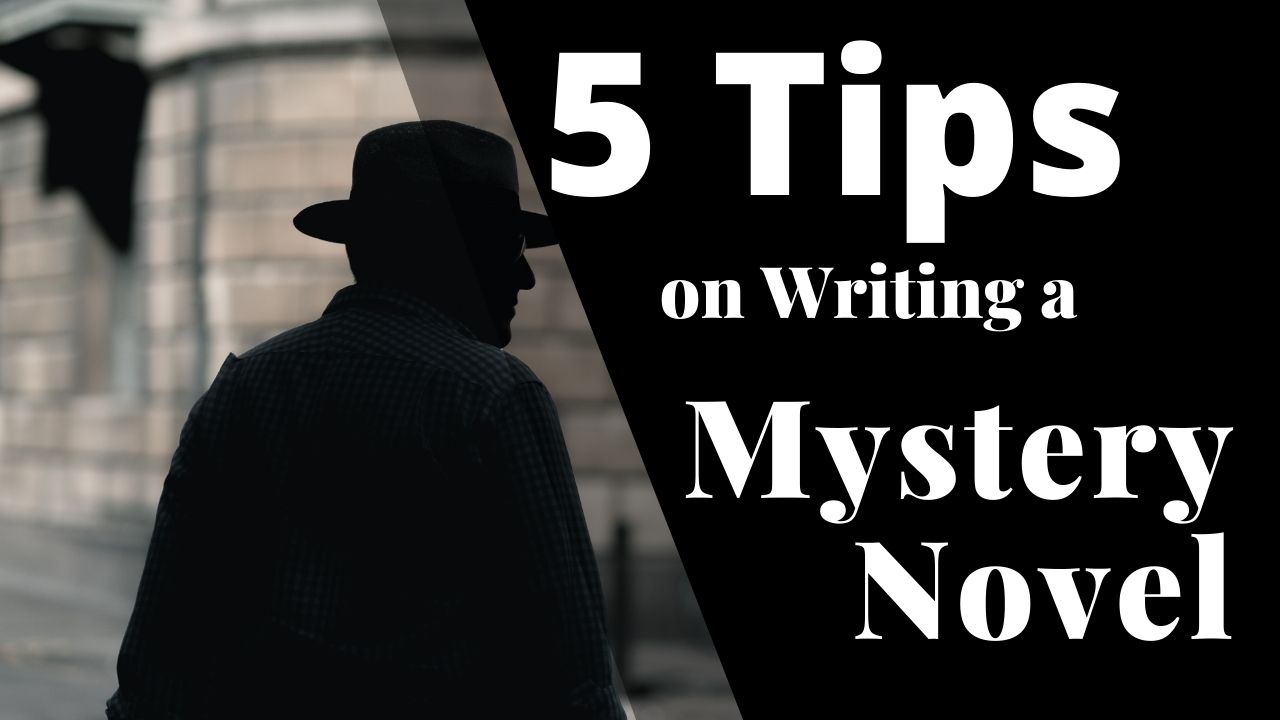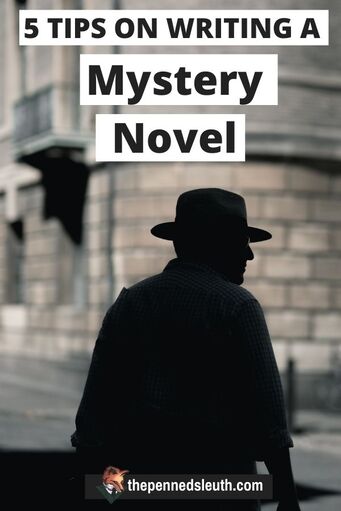Latest Writing Video! |
|
Mystery novels blew up in the seventies with the introduction of Agatha Christies Poirot novels. Yet, it did not end with them. Many mystery novels started popping up and they took the world by storm. Murder mysteries and crime thrillers only seemed to grow in popularity and today is no different. As one of the genres that are always in fashion, many writers are trying to write their own mystery novels, but are finding it a challenge. Here are 5 tips to make your mystery a must-read! Pin for Later!1. Take Inspiration from Other MysteriesIt should be said that I don’t mean copy an entire mystery and use it for your own. That comes across as plagiarism, but luckily, there are many aspects to any successful mystery that can be altered to make it your own. First, you can take inspiration from one mystery to inspire your main character and another mystery to inspire your villain. There are many examples of Sherlock Holmes level intelligence in many mystery novels. Yet, personality might lean more towards Columbo. There is a wealth of examples to take inspiration from, you need only look at your favourite mysteries closely. Read them as a writer, understand how the writer made their world, how they planned their mystery. Once you have done that, you need only use what you enjoyed. If a mystery used a red-herring in a way you like, use it. Start building up a mystery with what you feel is right and what you know is right. 2. Plot Every Little DetailWhile you are making graphs and diagrams, now is the time to bring up the planning process. You need to plot every detail. Mystery readers are an observant bunch, who analyse all that you say because they are looking for clues. The reader is proactively trying to solve the mystery before the protagonist. In their own mind, pieces will start fitting together, that’s why if you make a mistake, that is what they will think about. Mystery novels are always a step up in complexity than other novels, which is why it is easy to contradict yourself when writing your mystery. Plot it out, create clues, tie clues to characters. Next, turn those clues over. How many were planted? How many were accidental? You are the detective and the criminal. You need to devise the plan, then you need to break it down, then build it up again. A back-and-forth that will eventually lead to your mystery novel plot. 3. Use the ReadersWhen writing a mystery novel, you can write it one of two ways. One, you can write it where the detective is always ahead of the reader. The protagonist finds the clues, pieces them together and explains it through dialogue before the reader is told about any clues. When writing a mystery novel this way, you don’t need to layout the crime scene so carefully, as the protagonist will keep things on track. After all, your protagonist has your insight, as much as you give them. The second way. Your reader and protagonist are in this together. Clues, information and characters are presented to the reader and protagonist at the same time. The protagonist will slowly piece things together while the reader does the same. Sometimes, the two will disagree and that’s natural. Perhaps the protagonist has a piece of information the reader doesn’t or perhaps the reader is a touch smarter. Both ways are excellent for mystery writing, but the second will garnish more reader involvement. You should already have an idea that works for your story best. 4. Misdirection is Your FriendAh, the red-herring. One of the most important aspects of any mystery novels is misdirection. A clue, a detail that leads the reader and the protagonist in the wrong direction. If done well, a reader will have no clue that they are being led astray and the story will progress towards a twist that shocks the reader, but still makes sense. That is the key to misdirection. Misdirection is a believable lie, a lie that even appears as a lie, but is actually the truth. It is a complex, well-crafted lie that throws off the protagonist. It is the trump card up the criminal’s sleeve and it is a wonderful aspect of mystery writing. Usually, these lies are revealed for what they are in the last few chapters, which is when the reader and protagonist think they have it all figured out. Misdirection lets the reader know that the story is still a mystery. It still needs their close attention if they are to have a grip on what is happening. Use misdirection. The smarter your villain, the more misdirection they use. 5. Don’t Overcomplicate ItWith all these pieces to work with, it is easy to overdo it. Don’t get me wrong, mystery novels are meant to be complex. At the same time, you don’t want to bog your reader down in so many clues, so many characters and so many ties between them all. There is a point where the reader stops trying to keep track of everything and at that point, you no longer have reader involvement. The reader is simply along for the road. It’s not just the reader you bog down with all this information. You as the writer need to keep a firm grip on your plot. All the characters, the plot and the clues need to be understood by you and if you find yourself struggling, then mystery readers like yourself will be struggling too. Use all the tools at your disposal, create a puzzle to piece together, but don’t overdo it. ConclusionMystery has always been my favourite genre of writing. Although I typically write horrors and thrillers, the mystery has always been the genre that I wish to write. The mystery is the genre that inspired me to become a writer, it is the reason I love twists in stories. I have dabbled in mystery, published several stories in the mystery genre, and every time I use the detective trope. To me, there is something so wonderful that there is a designated career for people who unravel mysteries, piece clues together and catch the criminal. Of course, it’s not just detectives in mystery, but all these tips apply. I hope you found them helpful and as always… Good day, goodnight and happy writing! Thank YouAs a big thank you for reading this article I would like to offer you something for FREE! A writing course on how to improve your main character! Click here to check out your course. If you are unsure about a course, then you can sign up for free training! Claim your free training here! Thank you for reading! Kind regards Matthew Dewey, Writer
2 Comments
1/20/2021 06:24:18 pm
I am so happy to read your article. All are very important in my writing research. Life resembles a novel. It's loaded up with anticipation. You have no clue about the thing that will occur until you turn the page. Please read my blog some other time on <a href="https://mlboydauthor.com/f/things-to-avoid-in-writing-romantic-suspense-novel">Things to Avoid in Writing Romantic Suspense Novel</a>
Reply
Leave a Reply. |







